Connect Salesforce Service Cloud
Overview
This document explains how to use Salesforce ServiceCloud with Pypestream.
For more information about Salesforce Interface, see the Salesforce documentation.
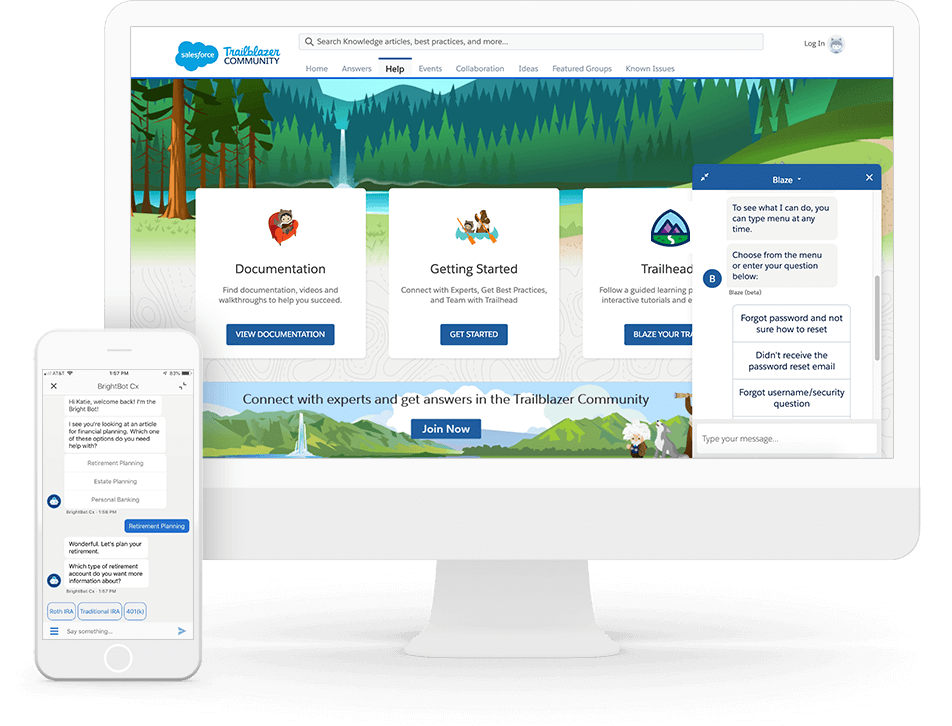
Capabilities
Capability | Description |
|---|---|
Send and receive messages | The Agent can open the conversation request and start interacting with the end-user in the Conversation panel. This Conversation panel displays the complete conversation history of the end-user with a Pypestream Solution. In the Conversation panel, the agent can type the response message in the Message field and click the Send button to send the message to the end-user. |
Queue Position | When the end-user request for an agent to interact, Pypestream tries to connect the customer to an appropriate agent. Based on the agent selected for the end-user, the position of the end-user’s request in the wait list is communicated to the end-user. For example, “You are number # in the waitlist.” |
Agent’s Conversation Queue | After Pypestream integration, when the Agent logs into Salesforce and makes themselves available for conversations, they get the current request in the Conversation queue. |
Transfer Conversation | While interacting with the end-user, if the Agent finds that a skilled agent is required to handle the user, they can transfer the conversation to another Salesforce Service Cloud. The Agent can select the required skill and select an agent from the skilled agent's list. They can also add a message in the Message field to explain the issue for which the end-user has contacted. |
Attach Conversation | In addition to the text messages, the Salesforce Service Cloud can also attach an image or contact to the conversation. When they click the Attachment icon, the list appears with the items they can attach. These include: Case, Contact name, Lead, Account name |
End User Details | While the end-user is sending the response message, the Salesforce Service Cloud can view the end-user details, case details, social information, and any additional information in the Conversation window. |
Offline Case Creation | Offline case creation is the ability of Pypestream to create a case for the end-user who requests for an agent, but there is no any agent available at that time. The case includes various details of the end-user that can help agents to call back the end-user later day. |
End Conversation | After completing the interaction with the end user, the Salesforce Live Agent can click the End Conversation button to end the conversation. The confirmation message opens to confirm the End Conversation command. |
Configuring Salesforce
-
In Salesforce, set up a Salesforce Console App if one is not already configured. Read Salesforce Console for more information.
-
Assign the Salesforce Console User Permissions to Users. Read Assign the Salesforce Console User Permission Set to Sales Console Users for more information.
-
Enable Live Agent.
In the Salesforce setup, search for Chat Settings and select the Enable Live Agent check box to enable the Salesforce Live Agent.
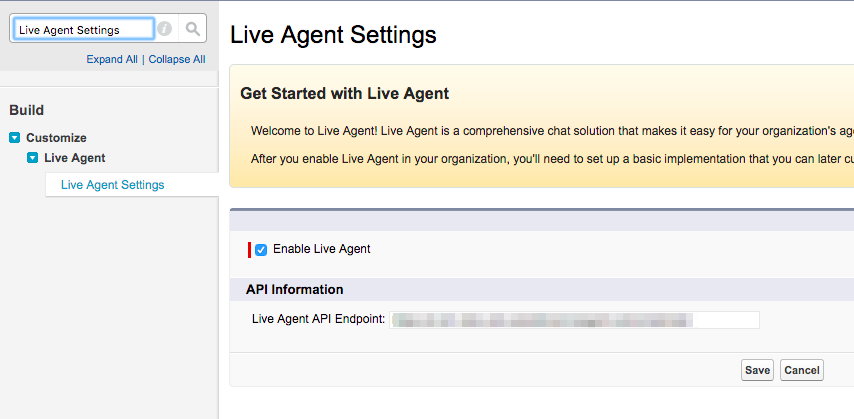
Live Agent Settings
- In the Users tab, assign the 'Chat user' permission to users
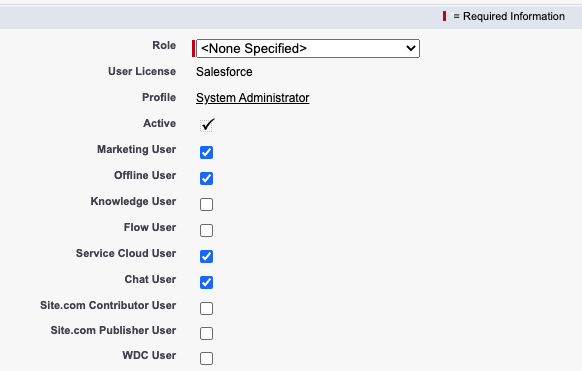
Chat user permissions
Connecting Pypestream to Salesforce Live Agent
In order to configure Salesforce, the user must have the Admin role.
- Select Admin (⚙︎) > Pypes and create or edit a Pype
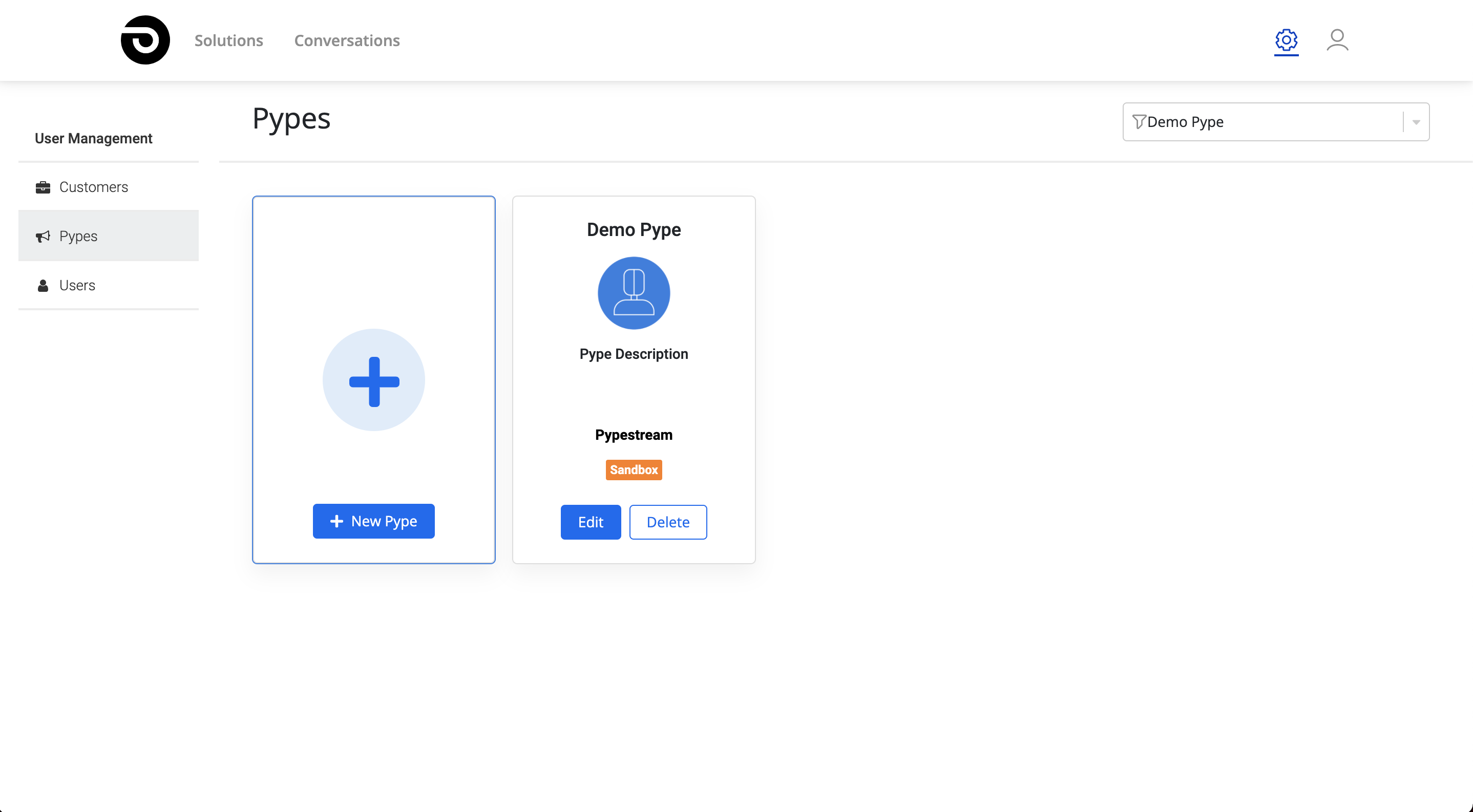
- Select Salesforce
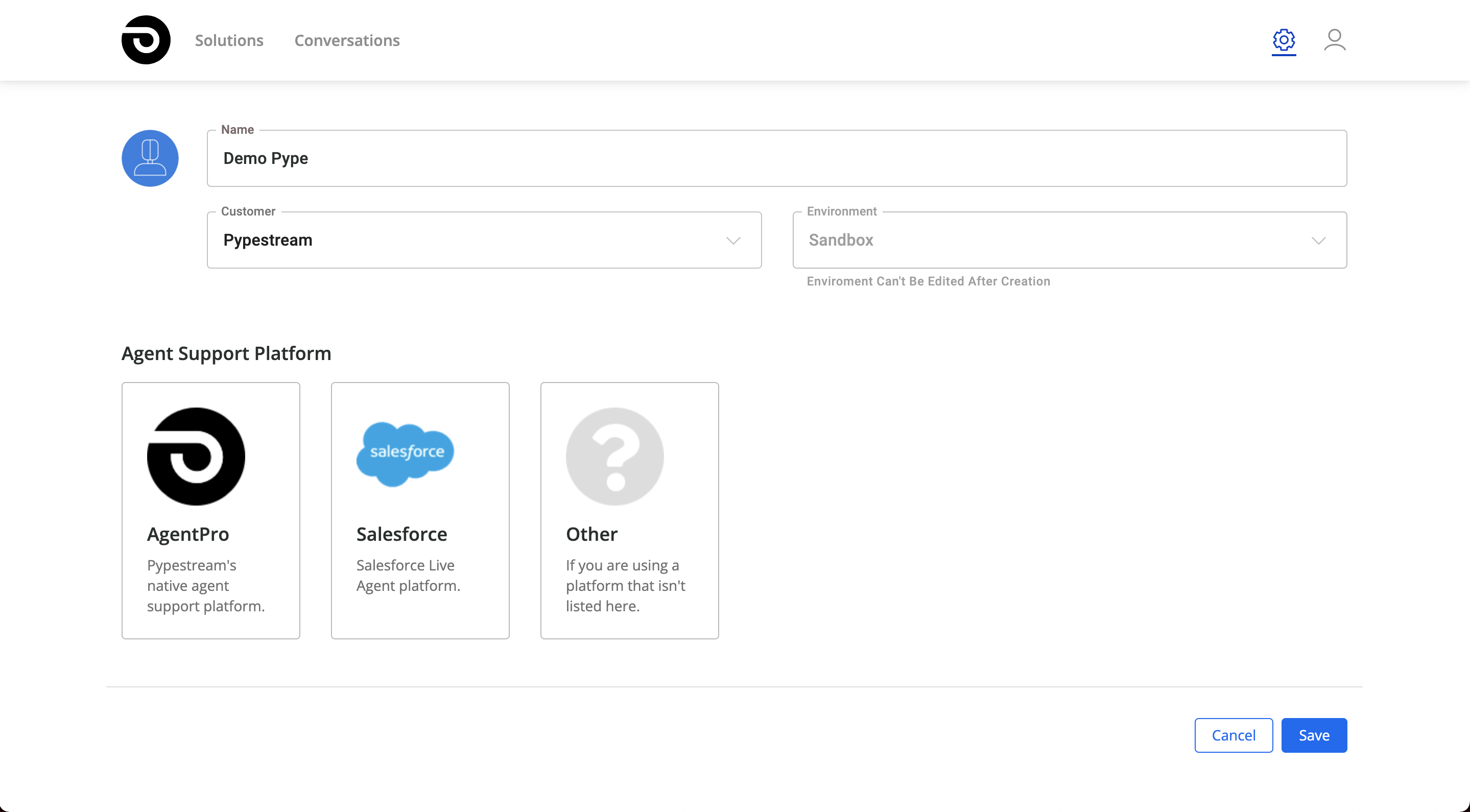
Agent Support Platform Configuration Page
- Enter the following Salesforce account details:
- Live Agent URL
- Organization ID
- Button ID
- Deployment ID
- Button ID
If you are not sure how to configure your Salesforce account or where to find account details, read Finding Salesforce account details.
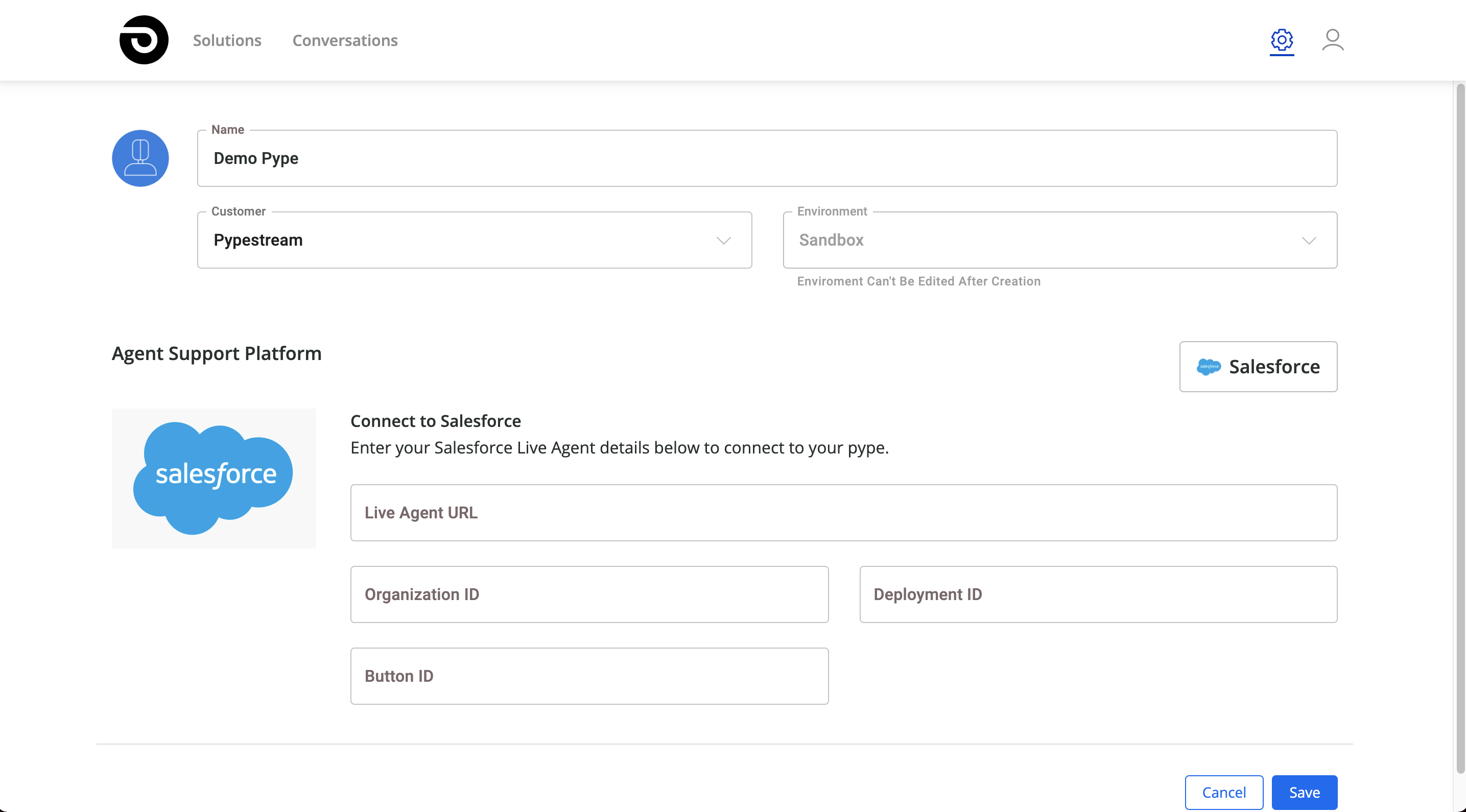
Salesforce details configuration page
Finding Salesforce account details
Live Agent URL
- In the Salesforce setup, search for Live Agent Settings.
- In the left navigation panel, select Live Agent Settings.
- The system displays the Live Agent Settings page.
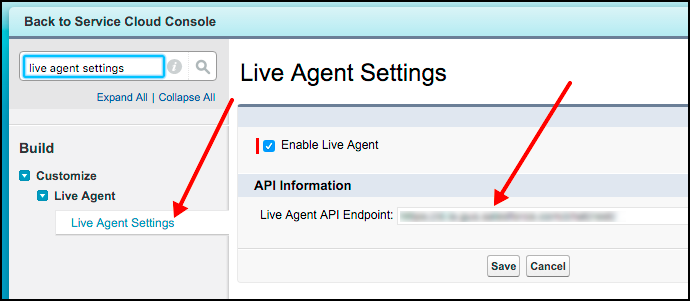
Live Agent API endpoint
- In the API information section, copy the host name from the Live Agent API Endpoint field and save it in a text file.
- Search for the Company Information.
- In the left navigation pane, select Company Information.
The system displays the Company Information page.
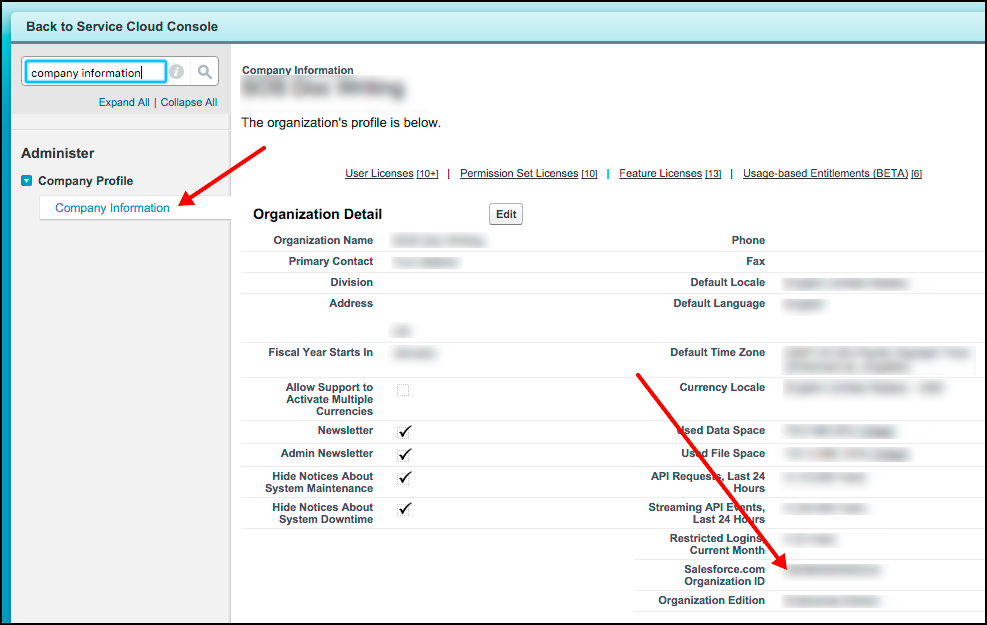
Salesforce.com organization ID finder
Organization ID
From the Salesforce Organization ID field, copy the organization ID value and save it in the text file.
Button ID
- In the left navigation pane, select Live Agents > Conversation Buttons & Invitations.
- The system displays the Conversation Buttons and Invitations page.
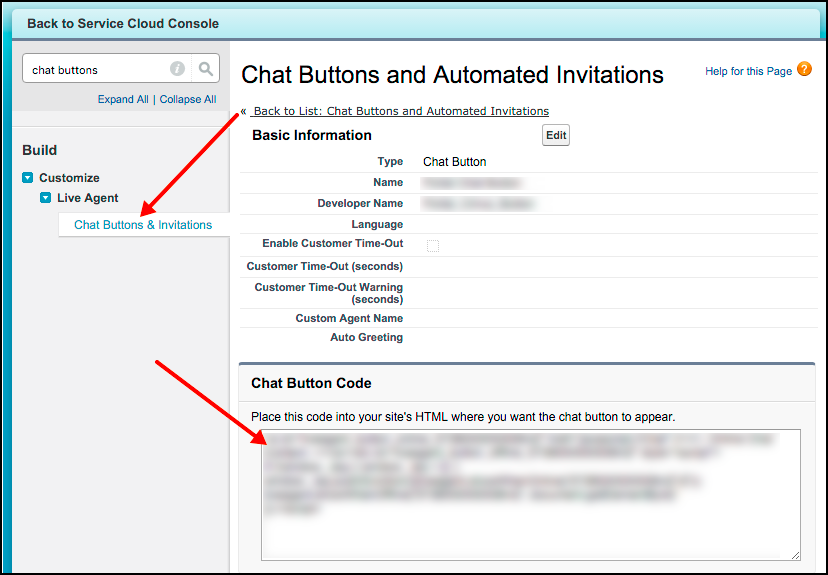
Chat buttons and automated invitations ID
- From the Conversation Button Code field, copy the ID of the button and save it in the text file.
Deployement ID
- Search for the deployments.
- In the left navigation pane, select Live Agents > Deployments.
- The system displays the Deployments page.
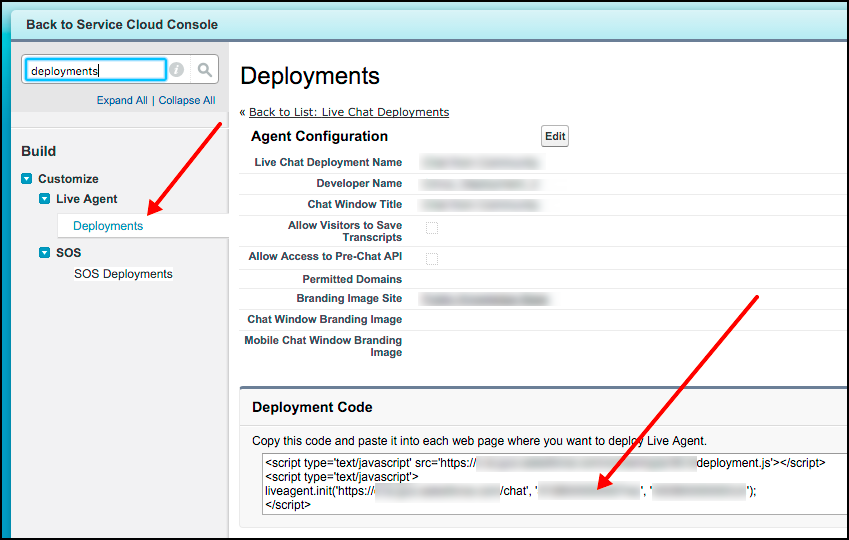
Deployment ID finder
- From the Deployment Code field, copy the deployment ID value and save it in the text file.
Testing Pypestream with Salesforce Live Agent
The following steps verify the Salesforce Live Agent configuration is correct.
- Log into Salesforce Live Agent.
- Initiate a conversation on a Pype or Social Channel.
- Ensure that the conversations are escalated to Salesforce Live Agents and the responses from Salesforce Live Agent are received by the end-user.
Updated 5 months ago
